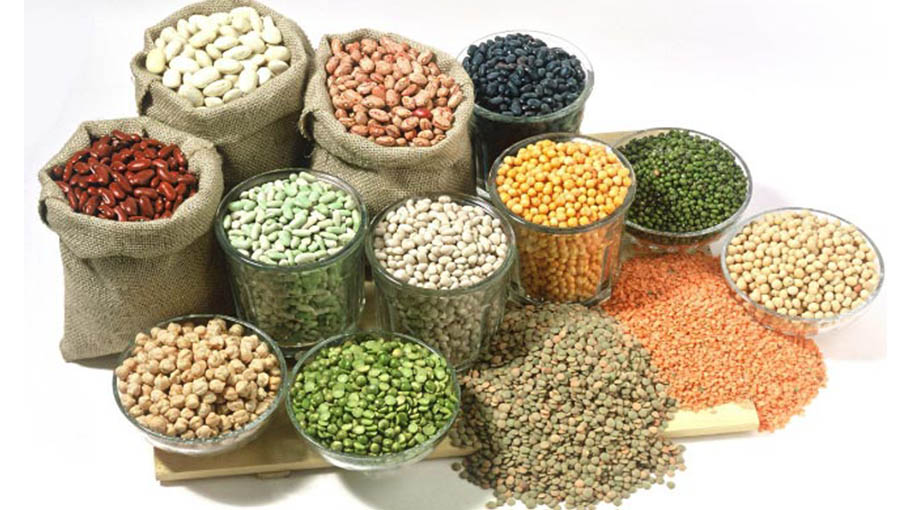‘No outcry for food in country’

Agriculture Minister Dr M Abdur Razzaque on Saturday said there is no outcry for food in the country as it is now self-sufficient in food grains production.
"Due to Russia-Ukraine war, supply of wheat has decreased from those countries. So, price of wheat in Bangladesh has risen like elsewhere in the world. As the wheat price rose, its demand has shifted to rice. So, the price of rice has also risen," he said.
Razzaque, also the Awami League Presidium Member, was speaking at a post-budget press conference at the Osmani Memorial Auditorium in the capital.
He said: "Though the price of our main staple food rice has increased, there is no public outcry for food. Bangladesh is now self-reliant in food."
Finance Minister AHM Mustafa Kamal, Education Minister Dr Dipu Moni, Health Minister Zahid Maleque, State Minister for Finance Dr Shamsul Alam, Bangladesh Bank Governor Fazle Kabir, Finance Division Senior Secretary Abdur Rouf Talukder, NBR Chairman Abu Hena Md Rahmatul Muneem, Financial Institution Division Secretary Sheikh Mohammad Salim Ullah, Planning Division Secretary Prodeep Ranjan Chakrabarty, ERD Secretary Fatima Yasmin were present at the press conference.
Besides, ministers, state ministers, secretaries and other high officials from different ministries and divisions were also present.
On Thursday, the finance minister placed a Taka 6,78,064 crore proposed budget for the next fiscal year at Jatiya Sangsad eying a 7.5 percent growth and containing average inflation at 5.6 percent.
The agriculture minister said though price of fine rice has risen, the price of coarse rice didn't increase in the last two months.
Fine rice is being sold at Taka 65-70 per kilogram, but coarse rice is being sold at Taka 43-46 per kilogram, he said.
He said people's tendency of fine rice consumption has risen all over the country including in the rural areas which means people's capacity of consumption of fine rice has also increased.
Around 60-70 percent people now live in the villages of Bangladesh, he said.
Explaining how the government is extending support to these 60-70 percent people, he said price of per tonne potassium fertilizer was $300-350, but it has now risen to $1200, he mentioned.
The government has to provide subsidy in fertilizers to a great extent as the government has given subsidy of around Taka 24,000 crore in fertilizer in the current fiscal year, he mentioned.
"The people living in villages are directly getting this cooperation. So, there is no scope to make any mismatch to this end," he said.
If the government didn't provide the subsidy, agricultural production would have reduced while farmers would also have faced different economic crisis, he said.
The minister said as the people's earning has increased, their quantity of consumption has also risen.
"Those who could manage only one meal in a day, now can have two or three meals. We also want to see it," he said.
As the food production is sufficient in the country, it will not face any crisis of food, he said.
"Even if we cannot procure food products from other countries due to instability in international market, the country won't face any food crisis. We have reached the country to such position," he said.
"Our scientists also invented new varieties of rice (BR-89) which will increase rice production by 50-60 percent," he said.
"Every year, around 25,000 lakh new faces are adding to the total population in country. Influx of Rohingya population has also added 10 lakh more. We are also feeding them," he said.
After meeting the increased demand, it is proposed in the new budget that, the government will provide rice to extreme low income group people at Taka 15 per kg, he said.
As many as 50 lakh families meant 2.5 crore people will be facilitated under the social safety net programme, he said.
"To ensure nutrition for everyone, we are trying to increase consumption of fish, meat and milk through reducing dependency on rice consumption," he said.
Per capita rice consumption has declined to 370 gram from 417 gram per day which is a good sign, he said, adding that per capita rice consumption is not more that 200 gram in other countries in the world, including Japan.



